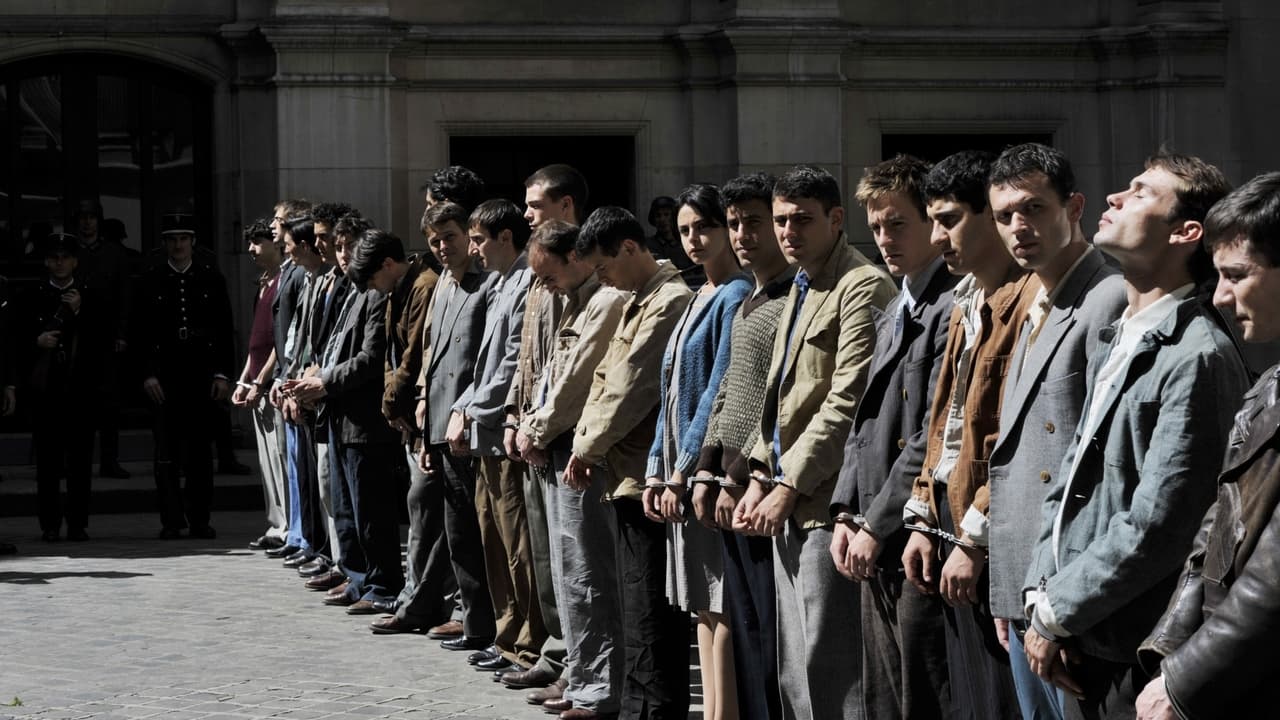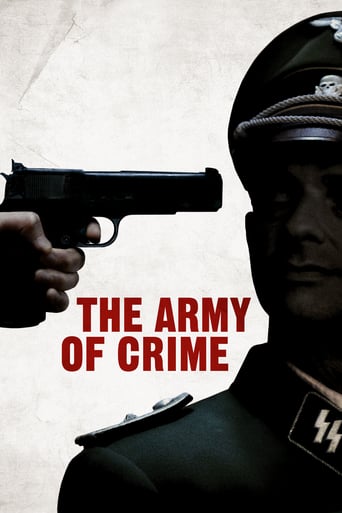

Set up myself to watch this DVD with great anticipation, having high expectations from what seemed an engaging internationalist story with interesting characters. Having distanced myself from over-sentimental Hollywood production, I often turn to the more complex European productions. But this was an unexpected disappointment. There were the usual clichés, the usual scenes of old neighborhoods and relationships, the usual stereotypes, the "good" folks and the "bad" folks, and simplistic portrayal of societal conflict. It almost seemed as if it was done on purpose to dumb-down some moral educational principle to a population, as on a mission of historical revisionism and political correctness.
... View MoreThis is a beautiful film about an ugly era. With subtly beautiful photography and quietly nuanced acting, it captures the mood of occupied France. Parisians bicycled, canoed and made love in the summer sun while Wehrmacht soldiers strolled, marched and rubber necked. If you were a German soldier in 1940 or 41, Paris was the place to be. The film also has that wonderful European quality that Hollywood never has managed to match or even understand. The performances are outstanding, often conveying more with a nervous glance or a cautious gesture than a page of dialogue could achieve. The vintage French cars and buses are a treat in themselves as are the scenes in the Paris Metro with the vintage carriages. (I rode in these as late as the seventies. I believe they are all retired now.) But the real worth of the film is that it challenges the common notion that all Frenchmen fought the "boche." Indeed many welcomed them and supported Petain. A powerful, beautifully done movie but it's unlikely to turn up as in flight entertainment on Air France.
... View MoreThe men and women who resisted the Germans in WWII were the living embodiment of Emiliano Zapata's famous words. Some used peaceful means(The White Rose Society), other violence.(Maquis) This movie details the story of those who embraced violence in order to resist the Nazis.What I particularly liked about this movie was its portrayal of the collaboration necessary to crush such movements. The french police was tacitly involved in the suppression of France's resistance movements. Along with the infamous Milice, the french police provided the Gestapo a means to violently smash those who dared fight back. "Army of Crime" does a nice job of showing the underhanded the methods the french police would use to betray their countrymen.People who feel uneasy about the brutal means used by such movements should do two things: A) Understand that war is brutal in every aspect. A soldier's life is no less valuable then a civilians. B)Realize that the only way to effectively deal with the Nazis' was to meet them with the same level of ferocity and ruthlessness that they dealt out to others. Ethics mean nothing if one is not able to live them. Under normal circumstances those in the resistance would not have done what they did, but then these were not normal circumstances.I laud these heroes for dying fighting merciless brutes. It is not glorious to die for one's country, but it is honorable to die to protect what you cherish most.
... View MoreParis in the sunshine... through meshed windows. Several normal-looking men and women travelling in a grilled bus. A woman sees another woman wheeling a pram along a promenade, she wonders aloud whether the pram contains bombs. On a boating lake a man is scratching away on a sketch pad whilst his paramour drapes alluringly in the prow. He's not sketching her though, we cut to the pad and see that he's a pamphleteer. "Fair is foul and foul is fair" is the view we are given in this short space of time at the start of Army of Crime, Robert Guédiguian's vital new movie. Marcel Ophüls' 1969 documentary The Sorrow and the Pity is all anyone needs to see to comprehend the loathsome extent to which the government in France (uniquely) collaborated with murderous fascists. However folks are no longer keen on seeing four hour long black and white documentaries what with their absence of music video effects and popular music and such. So Guédiguian has revived the history, and not just for revival's sake, also to counter contemporary anti-immigrant prejudice. Whilst the naturalised French, in large proportion failed to resist the Nazis, many French immigrants on the other hand laid down their lives in the Communist resistance. By contrast, the low point of the entire collaboration was when a twentieth century French police force decided to resurrect the Carthaginian traditions of mass child sacrifice, and chose as their Tophet, the Velodrome d'Hiver. Without the help of a single Wehrmacht soldier, SS soldier, or Gestapo thug, the French police rounded up 13,000 Jewish souls including 4,000 children, who were then shipped off to Auschwitz. Against these existential lepers of the Gendarmerie stood Missak Manouchian and his band of fighters (the FTP-MOI), many of whom had already fought the tide of fascism in Spain.Manouchian is a very interesting character who perhaps received the most character development of all the fighters. He was an Armenian refugee, who survived the Armenian Genocide, which was perpetrated by the Ottoman Army. Out of the silence that followed his terrifying experiences grew his poetry, which was beautiful (based on the example we see in the film). He has to take two key compromises during the film. In order to escape from a camp of hostages, he has to sign a document declaring that he is not a communist. Initially he refuses to sign, but in order to live he eventually does. The second key compromise is when he agrees to kill even though he does not believe in killing, calling it "unethical". It is very difficult for the fighters, they are so full of life, they decide that they must be the enemies of the enemies of life.Please note that there is a scene of gruelling torture in this film, committed of course by the French police.It's one of those rare films that is actually edifying, where you come out with a will to live, a will to do right, and a will to speak out against racial intolerance. It is the polar opposite of the crass and odious Inlgorious Basterds, still playing at the cinema, and attracting over a hundred times more spectators.
... View More